Document Author
Year Published
Topic
- (-) Remove Forms filter Forms
- Forms (17) Apply Forms filter
- Plain Language & LEP (8) Apply Plain Language & LEP filter
- 100% Access to Justice (7) Apply 100% Access to Justice filter
- Plain Language (7) Apply Plain Language filter
- Self-Help Centers (7) Apply Self-Help Centers filter
- Reports, Evaluations, Best Practices, Surveys (6) Apply Reports, Evaluations, Best Practices, Surveys filter
- Research (6) Apply Research filter
- Trial Court Self-Help (6) Apply Trial Court Self-Help filter
- Simplification (5) Apply Simplification filter
- Best Practices for Self-Help Centers (4) Apply Best Practices for Self-Help Centers filter
- LEP and Access (4) Apply LEP and Access filter
- Strategic Planning (4) Apply Strategic Planning filter
- Articles & SRLN Briefs (3) Apply Articles & SRLN Briefs filter
- Ethics Education (3) Apply Ethics Education filter
- Judicial Ethics (3) Apply Judicial Ethics filter
- Technology (3) Apply Technology filter
- Automated Forms & E-Filing (2) Apply Automated Forms & E-Filing filter
- Best Practices (2) Apply Best Practices filter
- Evaluation (2) Apply Evaluation filter
- Judges (2) Apply Judges filter
- Presentations (2) Apply Presentations filter
- Reports (2) Apply Reports filter
- Triage (2) Apply Triage filter
- Unbundling (2) Apply Unbundling filter
- Webinars (2) Apply Webinars filter
- Bar Referral Systems to Unbundled (1) Apply Bar Referral Systems to Unbundled filter
- Constitutional Issues (1) Apply Constitutional Issues filter
- Libraries (1) Apply Libraries filter
- Managing a Self-Help Center (1) Apply Managing a Self-Help Center filter
- Starting a Self-Help Center (1) Apply Starting a Self-Help Center filter
State
- Michigan (4) Apply Michigan filter
- New York (3) Apply New York filter
- Alaska (2) Apply Alaska filter
- Washington (2) Apply Washington filter
- California (1) Apply California filter
- Colorado (1) Apply Colorado filter
- Connecticut (1) Apply Connecticut filter
- District of Columbia (1) Apply District of Columbia filter
- Florida (1) Apply Florida filter
- Georgia (1) Apply Georgia filter
- Illinois (1) Apply Illinois filter
- Indiana (1) Apply Indiana filter
- Iowa (1) Apply Iowa filter
- Louisiana (1) Apply Louisiana filter
- Maryland (1) Apply Maryland filter
- Massachusetts (1) Apply Massachusetts filter
- Minnesota (1) Apply Minnesota filter
- Missouri (1) Apply Missouri filter
- Nebraska (1) Apply Nebraska filter
- Nevada (1) Apply Nevada filter
- North Carolina (1) Apply North Carolina filter
- Ohio (1) Apply Ohio filter
- Tennessee (1) Apply Tennessee filter
Region
- (-) Remove United States filter United States
Tags
Post date
Search results
Report: Resources to Assist Self-Represented Litigants: A Fifty State Review of the State of the Art (Greacen 2011)
This report was originally commissioned by the Michigan State Bar Foundation to assist Michigan’s Solutions on Self-Help (SOS) Task Force, but modified to serve as a national resource so that it may be of value to other jurisdictions working to enhance su ...
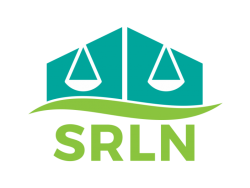
SRLN Brief: Plain Language Resources for 100% Access (SRLN 2015)
What is plain language? As described by the federal government on plainlanguage.gov, plain language is communication your audience can understand the first time they read or hear it. Plain language is recognized as an essential best practice in all access ...
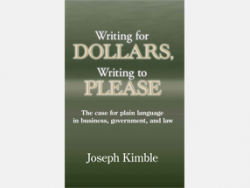
Book: Writing for Dollars, Writing to Please The Case for Plain Language in Business, Government, and Law (Kimble 2012)
This book collects the empirical evidence supporting the value of plain language in business, government, and law. Professor Kimble summarizes 50 studies (no less) that show using plain language can save organizations and agencies a significant amount of ...
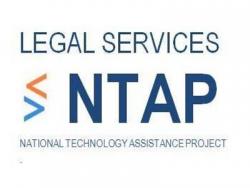
Webinar: Technology Tools to Enhance Legal Services for LEP- Websites, Videos and More (LSNTAP, LSC, ProBonoNet 2014)
In the webinar Technology Tools to Enhance Legal Services for Limited English Proficiency, four panelists (Kathy Daniels, IT Administrator Statewide Legal Services in Connecticut, Rochelle Klempner, Chief Counsel NYS Access to Justice Program, Mike Monaha ...
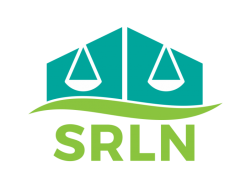
Webinar: Standardized Forms and Instructions (Rawdon 2006)
This SRLN Webinar from February 15, 2006, discusses the importance and logistics of providing standardized forms and instructions. It was presented by Glenn Rawdon, Senior Legal Council for Technology at the Legal Services Corporation, Harry Jacobs from t ...
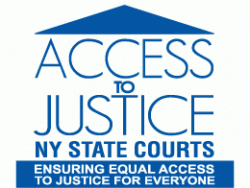
Best Practices: Best Practices For Court Help Centers: A Guide for Court Administrators and Help Center Staff Inside and Outside New York State (New York 2015)
A comprehensive best practices guide developed by New York covering the details of day-to-day operations of a self-help center, including a history of the New York state court help centers, initial considerations, types of services to offer, staffing and ...
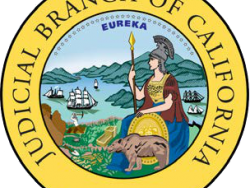
Weblinks: Efficiencies and Innovation in California (Judicial Branch of California 2015)
On its webpage entitled, Efficiencies & Innovations (courts.ca.gov), the The California judicial branch, which is widely acknowledged as a national leader in developing and implementing programs that enhance access to justice, provides information and ...
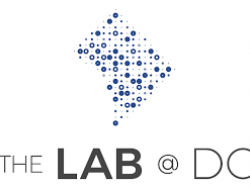
Conference: The Lab @DC, Office of the City Administrator Form-a-Palooza (Washington, DC 2018)
The 2018 Form-a-Palooza sponsored by the Lab @DC, Office of the City Administrator, will occur in Washington, DC and will focus on producing a prototype of select government forms. For more information see the Lab @DC event page. user-centered design; p ...
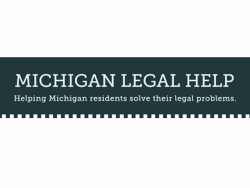
Evaluation: Michigan Legal Help Evaluation Report (MLHP 2015)
Executive Summary The Michigan Legal Help Program (MLHP) consists of two components: an interactive statewide website and affiliated Self-Help Centers that provide legal information assistance to individuals representing themselves in simple civil legal m ...
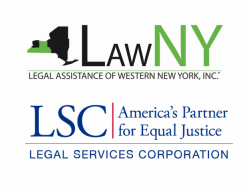
Report: Can Translation Software Help Legal Services Agencies Deliver Legal Information More Effectively in Foreign Languages and Plain English? (Hineline & Hogue 2013)
This report investigates the current and possible uses of translation tools, including fully-automated machine translation and a somewhat different translation technology, translation memory. Translation memory re-uses whole phrases that an expert has pre ...